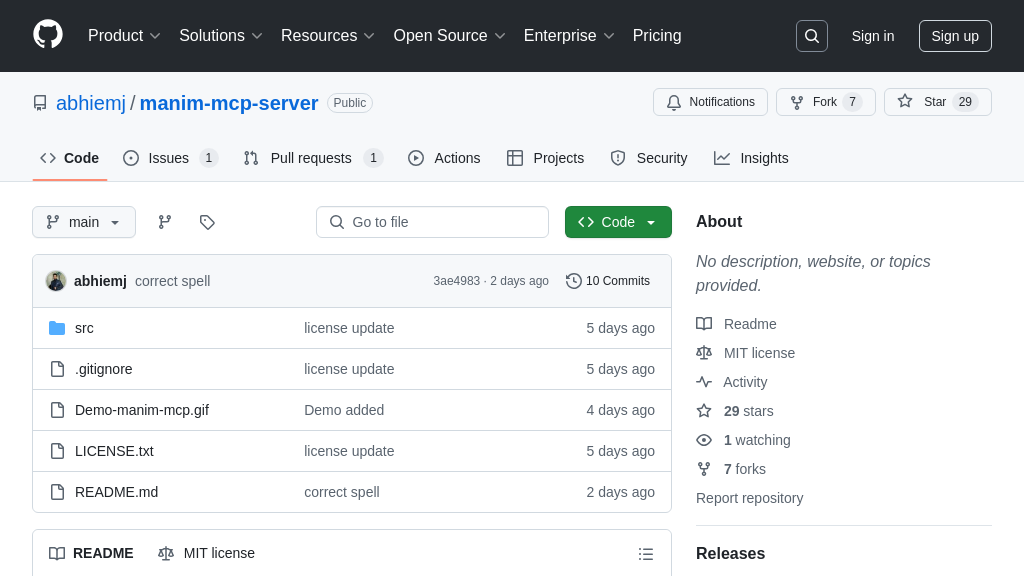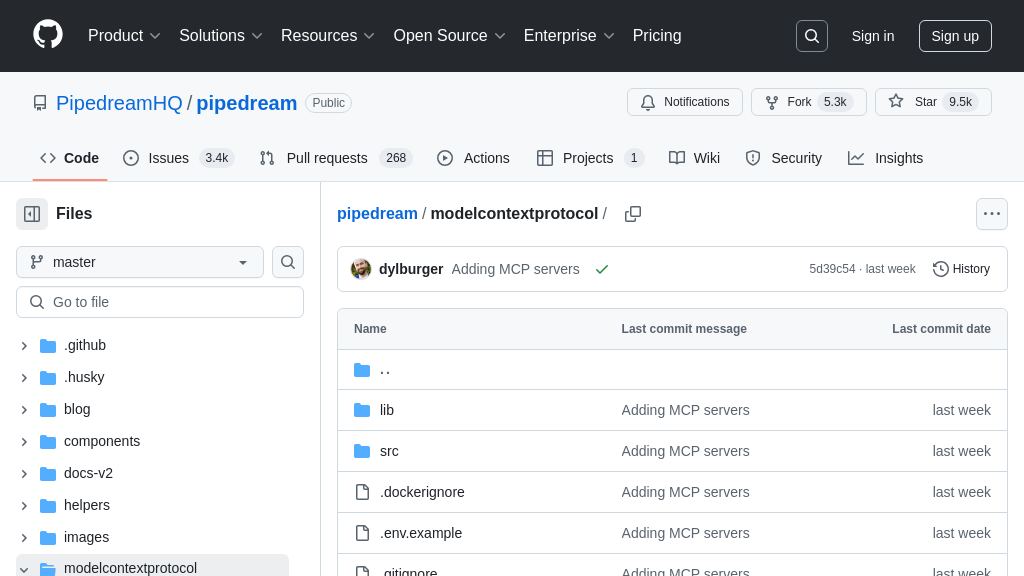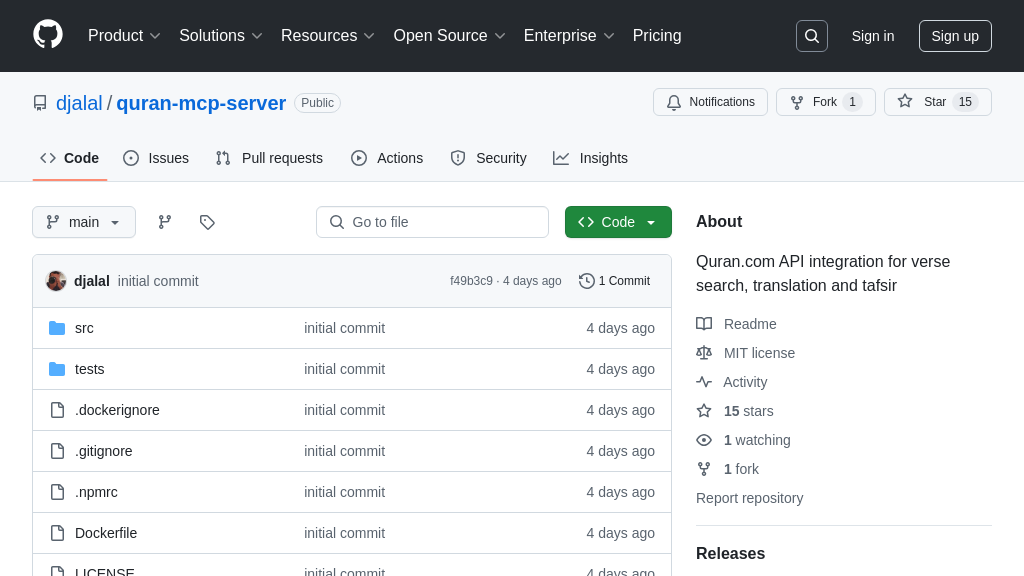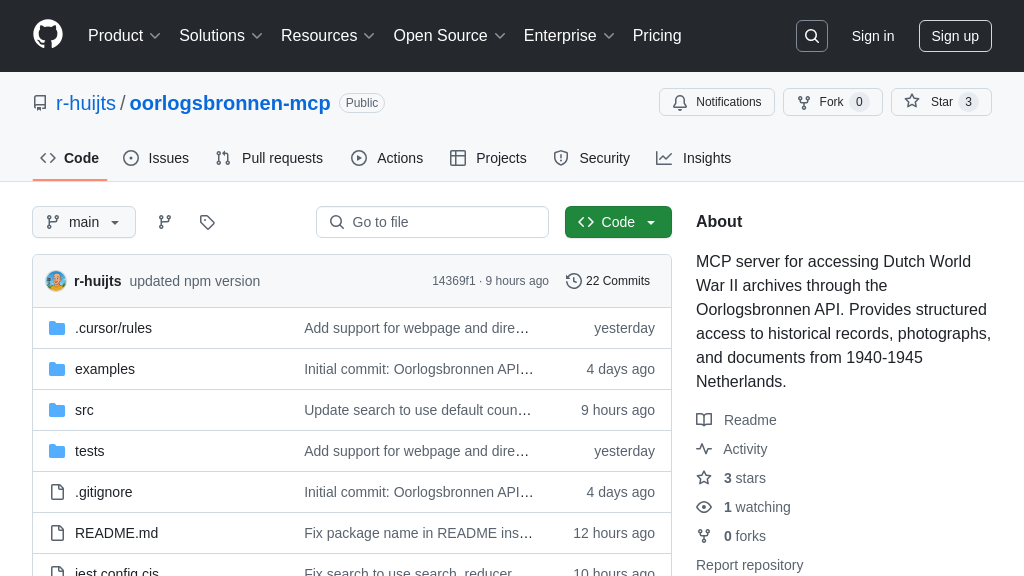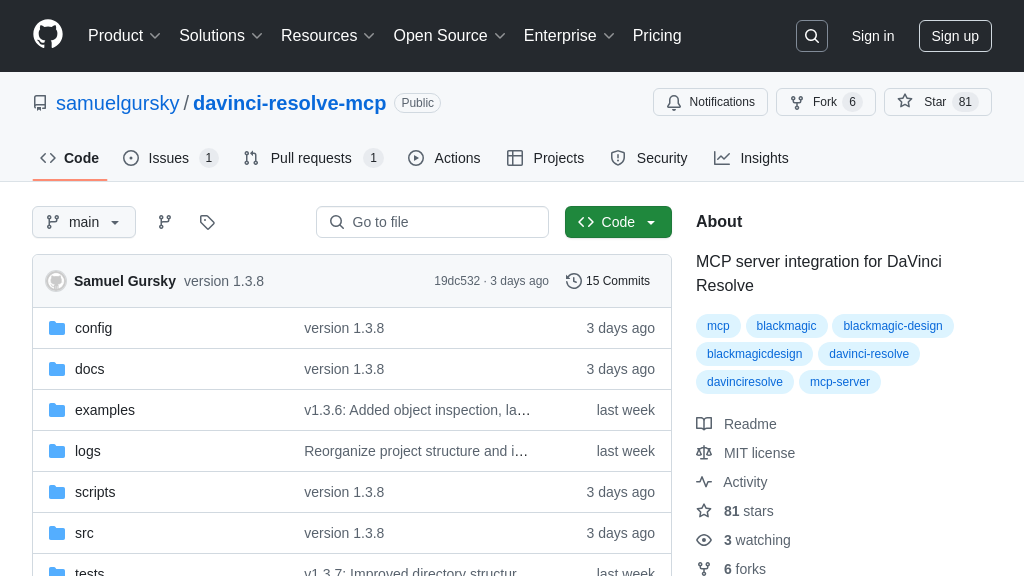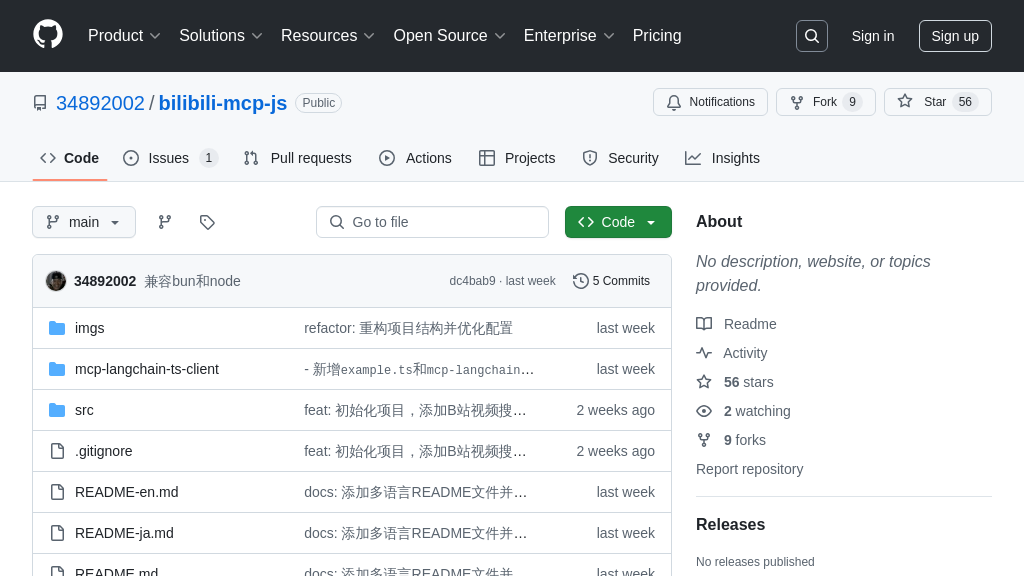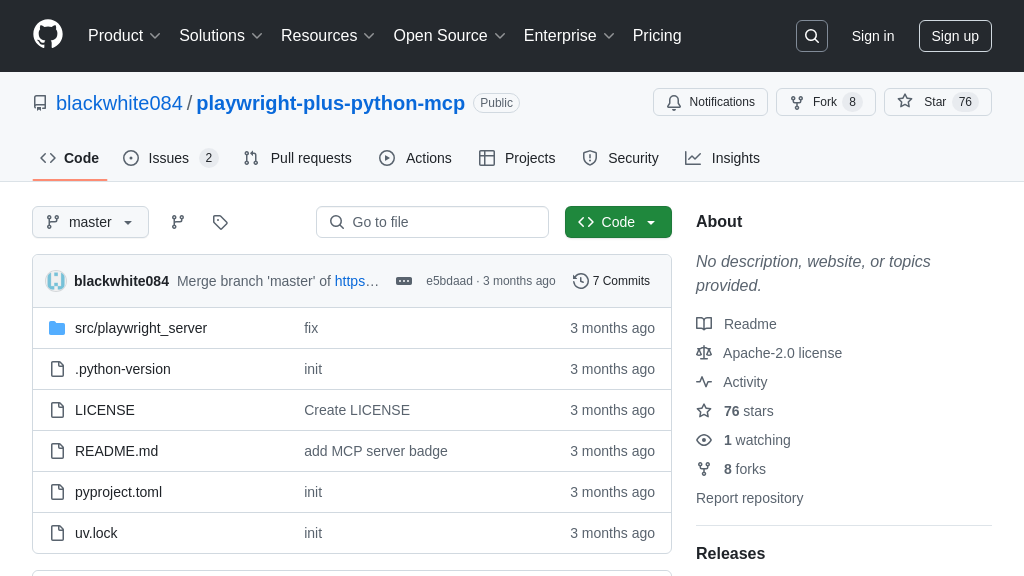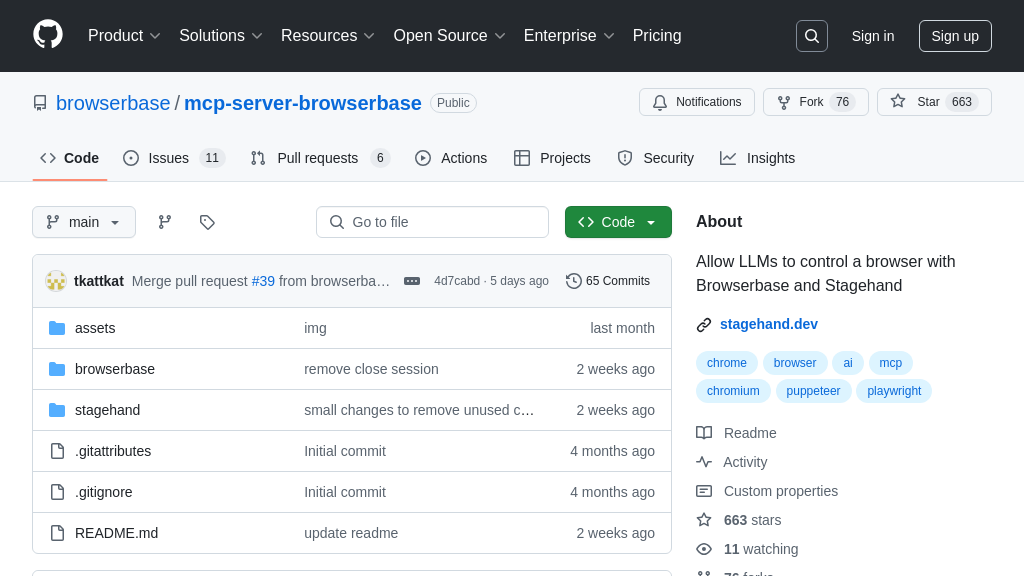mcp-server-nationalparks
Explore U.S. National Parks with AI! mcp-server-nationalparks provides real-time NPS data for your AI models.
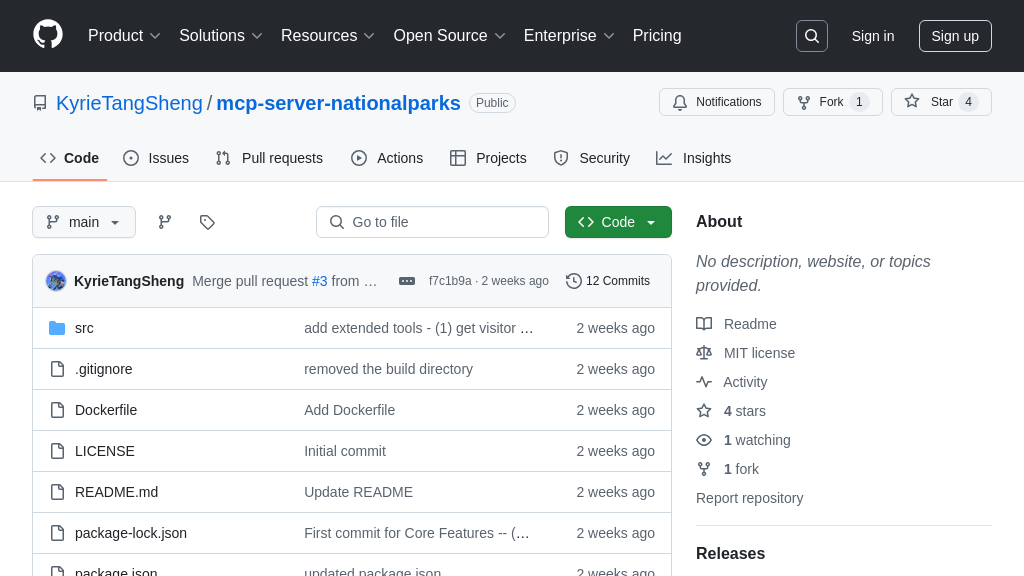
mcp-server-nationalparks Solution Overview
The mcp-server-nationalparks is an MCP server designed to provide AI models with real-time access to comprehensive data from the U.S. National Park Service (NPS) API. It empowers AI to answer user queries about park details, alerts, visitor centers, campgrounds, and events.
This server offers tools like findParks, getParkDetails, and getAlerts, enabling AI models to deliver accurate and up-to-date information. By integrating this server, developers eliminate the complexity of directly interacting with the NPS API, streamlining the process of building intelligent applications for travel planning, education, and accessibility.
The server seamlessly integrates with AI models through standard MCP protocols, using a simple npx command for setup. Requiring an NPS API key for authentication, it ensures secure access to valuable park data, enhancing the functionality and user experience of AI-powered travel assistants and information services.
mcp-server-nationalparks Key Capabilities
Real-time Park Information Access
The mcp-server-nationalparks provides AI models with real-time access to a comprehensive database of U.S. National Park information. This includes park details, alerts, visitor center information, campground availability, and scheduled events. The server acts as an intermediary, translating natural language queries from the AI model into specific API requests to the National Park Service (NPS) API. This allows AI models to answer user questions about park operating hours, entrance fees, available activities, and potential hazards. For example, a user could ask an AI, "Are there any closures at Yosemite National Park today?" and the AI, leveraging this MCP server, would fetch the latest alerts for Yosemite and provide an up-to-date answer. This eliminates the need for the AI to scrape websites or maintain its own database of park information, ensuring accuracy and reducing development overhead.
Dynamic Filtering and Search
This MCP server offers powerful filtering and search capabilities across various data points related to national parks. The findParks tool allows AI models to search for parks based on state, keywords, activities, and result limits. The other tools such as getAlerts, getVisitorCenters, getCampgrounds, and getEvents also provide filtering options using park codes, search terms, date ranges, and result limits. This enables AI models to respond to complex and nuanced user requests. For instance, a user could ask, "Which national parks in Utah have good hiking trails open this weekend?" The AI model can use the findParks tool to filter by state and activities, and then use the getAlerts tool to check for any trail closures, providing a highly relevant and personalized response. This dynamic filtering significantly enhances the AI's ability to provide tailored recommendations and information.
Standardized Data Retrieval
The mcp-server-nationalparks standardizes the way AI models access and interpret data from the National Park Service. By providing a consistent interface and data format, the server eliminates the need for AI models to handle the complexities of the NPS API directly. The server handles authentication, request formatting, and data parsing, presenting the AI model with clean, structured data. This simplifies the development process and reduces the risk of errors. For example, regardless of the specific park or type of information requested, the AI model can rely on a consistent response structure, making it easier to extract and present the relevant details to the user. This standardization promotes interoperability and reduces the integration effort required for AI models to leverage national park data.
Integration Advantages
The mcp-server-nationalparks is designed for easy integration into the MCP ecosystem. The provided claude_desktop_config.json snippet simplifies the setup process for Claude Desktop users. The server leverages standard input/output streams for communication, making it compatible with a wide range of AI models and platforms. The use of environment variables for storing the NPS API key ensures secure authentication. The server's modular design allows developers to easily extend its functionality or adapt it to specific use cases. This ease of integration lowers the barrier to entry for AI developers who want to incorporate national park data into their applications.
